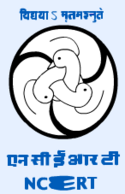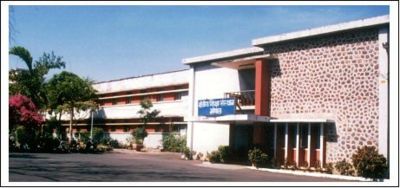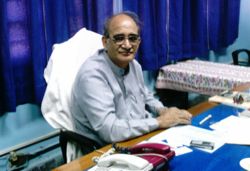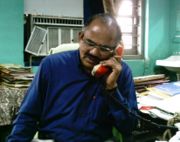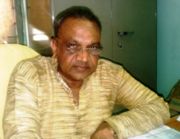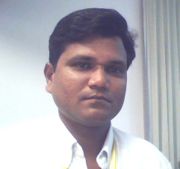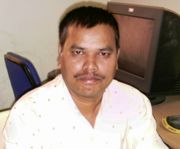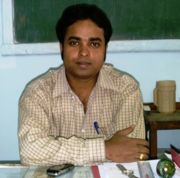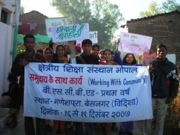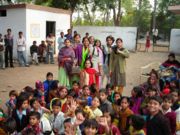Working with Community (2007-08)
| WORKING WITH COMMUNITY | |
|---|---|
| Working With Community Camp organized by Regional Institute of Education, Bhopal from 15 to 19 December 2007 | |
| Home | REPORT FROM BAIS NAGAR AND GANESHPURA | REPORT FROM SUNPURA | PHOTOGRAPHS | NEWS CLIPPINGS | |
क्षेत्रीय शिक्षा संस्थान, श्यामला हिल्स, भोपाल.
Welcome! On 26 January 2009, we are going to start our 5 days WWC programme. Report of this programme will be placed here very soon.
|
IntroductionThe National Policy on Education (1986) has clearly spelt out that “Local Communities through appropriate bodies will be assigned a major role in the programme of school improvement”. Thus Community involvement and Participation in the management of education becomes essential as a key determinant of the quality of implementation of school programmes. Realizing this fact, various initiatives of the Government targeted to bring reforms in the system of management of education. DPEP, SSA, Lokshala Project etc., have not only shown immense concern for community participation but also have conceived mechanism to ensure it. The mechanism conceived under various programmes and policies tend to focus on the fact that the school, particularly the teachers, should take the leadership role in bringing community closer to the school. This can be evident from the role supposed to be played by the teachers in the formation of VEC, PTA, MTA; and organization of the meetings of these associations. With regard to community mobilization and participation in the District Primary Education Programme of the country steps have been taken by MHRD to conduct impact studies and research activities. One such report was published in January 1988 on community mobilization and participation. The primary focus of the study was an assessment of the status dynamics and potential of community mobilization and participation of Village Education Committees in accomplishing the goals of District Primary Education Programme. The findings may be seen from the following: Emergence of Village Education Committee as village level institutions working on issues of basic education is beginning to take shape. A vibrant and active Village Education Committee supported by regular activities for wider community mobilization can become the most crucial factor in accomplishing the goals of District Primary Education Programme in the Project area. • While orientation of members of Village Education Committee has been carried out in the entire project Districts regular and sustained capacity building of Village Education Committee as a whole has been much less common. The guidelines circulated by Sarva Sikhya Abhiyan Samiti of Government of India to different states during 2002-2003 envisage a comprehensive and consolidated effort to achieve the goals of Universalisation of Elementary Education before 2007. It puts emphasis on community mobilization and empowerment of the community through participatory approach. It also puts emphasis on holistic and convergent approach towards Universalisation of Elementary Education (UEE). It aims at bridging the gender and social gaps in a time bound and integrated system. Vision-2020 (India) says that Human beings are distinguished among all living species by their capacity to develop and think. Though development is often measured in terms of so many miles of roads, number of tall buildings, airports, cars, TVs, computers etc., it is not things and places alone that define development. Development must be people centric. Twenty years hence, the people of India will be more numerous, better educated, healthier and more prosperous than at any other time in our long history. Having eradicated the scourge of famine that plagued the country for centuries, we still confront the challenging tasks of providing a nutritious diet to all our children, educating our teeming masses, abolishing epidemic diseases and creating employment opportunities for all our citizens.
Working with Community Programme: The ExperimentKeeping in view the above mentioned requirements and recommendations Regional Institute of Education, Bhopal included Working with Community Programme as an integral component of teacher training programme in camp mode.
Method of ParticipationDiscussion, rally, poster and banneer display, theme based cultural programme. Survey, interview, action research, case study, participant observation dissemination of success stories, interaction with community members etc. were included in the Working with Community Programme. Modalities of the ProgrammeThe details of the modalities of programme, including selection of venues, organization of camp and daily routine followed are as follows: Selection of VenueThree villages namely, Ganeshpura, Bais Nagar and Sunpura were selected as the venue of the programme. They are situated at a distance of 75 Kilometer from RIE. Bhopal. The villages are located in the Vidisha District of Madhya Pradesh.
Organization of the CampAfter discussion with the school authorities and community functionaries the modalities of the programme were formulated. The local Sarpanch, Police officer, Medical officer, and District Collector were contacted for the smooth conduct of the camp.
|

